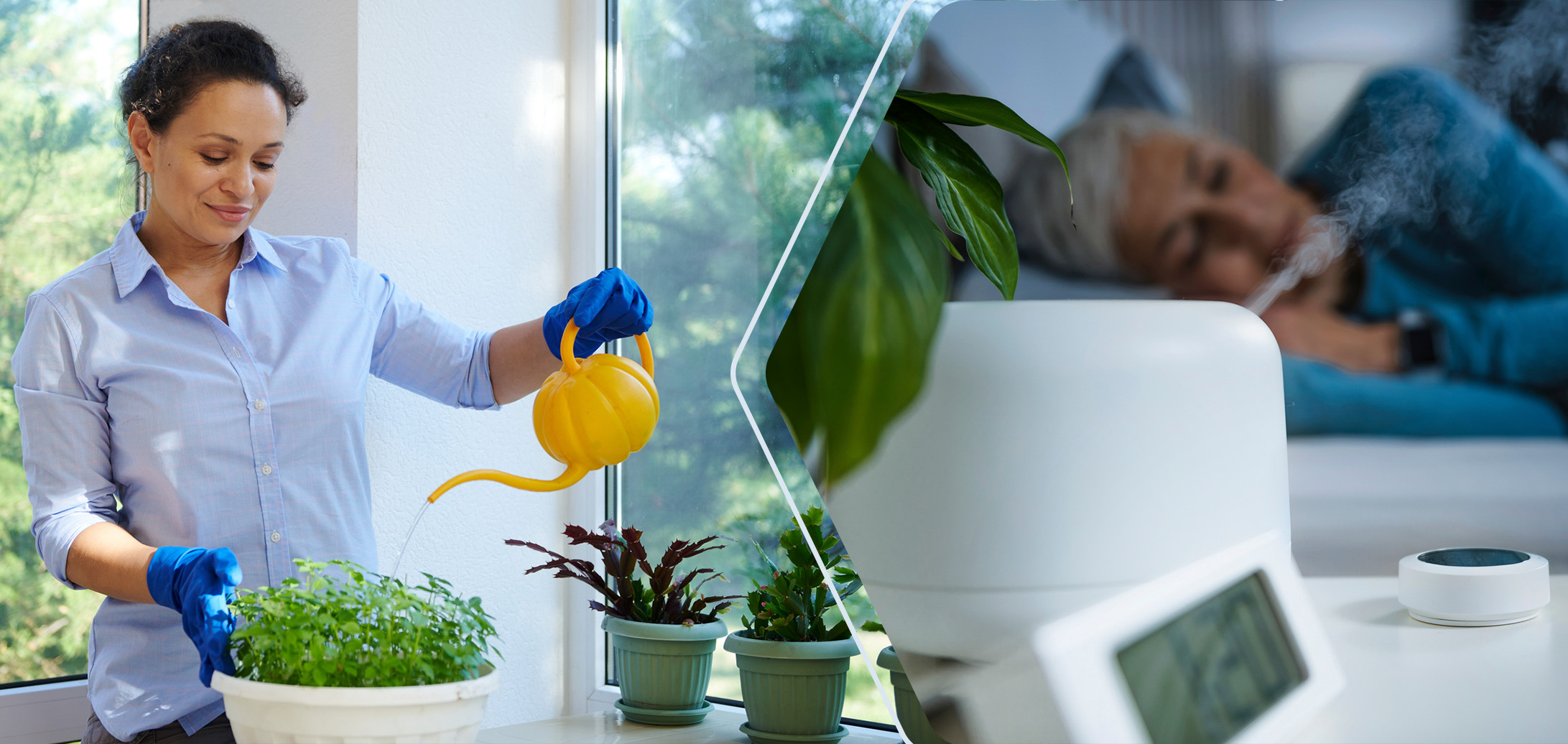12 Tips To Improve Air Quality Inside Your Home

Indoor air quality plays a pivotal role in your overall health and well-being, especially since most of you spend most of your time inside your homes. As homeowners and residents, it’s your responsibility to ensure that the air you and your family breathe within your living spaces is as pure and clean as possible. Otherwise, poor air quality can lead to several health issues, such as allergies, asthma, and other respiratory ailments.
This article aims to provide practical and effective tips to help you promote better air quality inside your home. By following these suggestions, you can create a healthier living environment that benefits your physical and mental well-being.
So, keep reading to achieve a cleaner and healthier home for everyone.
1. Ensure Proper Ventilation
One simplest and most effective way to improve indoor air quality is to ensure your home is properly ventilated. This can be done by opening windows and doors, especially during the warmer months, to allow fresh air to circulate throughout your home.
2. Use Air Purifiers
Air purifiers are known to effectively remove contaminants from the air in your home. Look for an air cleaner with HEPA filter, as it can capture particles, even as small as 0.3 microns. These devices can help to remove allergens, smoke, and other pollutants from the air, improving the overall air quality inside your home.
One such purifier to consider is the Molekule, which has gained positive attention in recent years. Before making a decision, it would help to read a comprehensive Molekule review to understand its features and benefits. Investing in a quality air purifier helps ensure a cleaner and healthier indoor environment for you and your loved ones.
3. Conduct Regular Cleaning
Regularly cleaning your home can help reduce the buildup of dust, pet dander, and other allergens that contribute to poor air quality. Vacuum your floors, carpets, and upholstery at least once a week, and ensure you’re using a vacuum cleaner with a HEPA filter. Also, frequently wash your bedding, curtains, and other soft furnishings and dust surfaces to prevent allergens from accumulating. Moreover, maintain the freshness of your living space by regularly cleaning and caring for your cotton linen drapes, ensuring a cozy and allergy-free environment.
4. Keep Floors and Surfaces Free of Clutter
Cluttered spaces can harbor dust, allergens, and other particles that negatively impact indoor air quality. By keeping your floors and surfaces clean and free of unnecessary items, you can reduce the buildup of allergens and pollutants. So, regularly declutter your living spaces and consider adopting a minimalist approach to your home décor to minimize the number of surfaces that can collect dust.
5. Opt For Hardwood Or Tile Flooring Over Carpets
Carpets can trap allergens, dust mites, and other pollutants, making them difficult to remove. But with hardwood, tile, or other hard-surface floorings, you can significantly lessen the amount of allergens and particles in your home. Meanwhile, for those who prefer the comfort and warmth of carpets, consider using area rugs that can be easily cleaned or replaced.
6. Control Humidity Levels
Maintaining your home’s humidity levels may prevent mold and mildew growth. These fungi can cause respiratory issues and allergies. To control humidity levels, use a dehumidifier in areas prone to dampness, such as basements and bathrooms. Furthermore, ensure that your home is well-insulated and that any leaks or areas of water damage are promptly repaired.
7. Avoid Synthetic Fragrances
Synthetic fragrances found in air fresheners, candles, and cleaning products can release volatile organic compounds (VOCs) into the air. These compounds can contribute to indoor air pollution and cause respiratory issues, headaches, and other health problems. It’s best to choose fragrance-free products or those made with natural essential oils.
8. Incorporate Indoor Houseplants
Incorporating houseplants into your home décor can help to improve indoor air quality. Many plants, such as spider plants, snake plants, and English ivy, can absorb pollutants and release clean oxygen into the air. However, it would help to research your chosen plants, as some can be toxic to pets and children.
9. Maintain Your Heating, Ventilation, And Air Conditioning (HVAC) System
Your home’s HVAC system plays a significant role in maintaining good indoor air quality. So, ensure that you clean or replace your air filters regularly, as the manufacturer recommends. You must also have your HVAC system inspected and serviced annually by a professional to ensure that it functions optimally and does not contribute to poor air quality.
10. Use Low-VOC Paints And Building Materials
It’s best to opt for low-VOC paints, adhesives, and building materials when renovating or building your home. VOCs can emit gas into the air, causing health problems and poor air quality. Low-VOC products are better for both your health and the environment.
11. Utilize Natural Cleaning Solutions
Many conventional cleaning products have harsh chemicals that contribute to indoor air pollution. It’s best to use natural cleaning solutions, such as lemon juice, vinegar, and baking soda, as these can effectively clean your home without releasing harmful chemicals into the air. Various eco-friendly, non-toxic cleaning products are also available on the market, which can help maintain a healthy indoor environment.
12. Properly Store and Dispose of Hazardous Materials
Some household products, such as paints, solvents, and pesticides, can emit harmful fumes and contribute to poor indoor air quality. Store these items in well-ventilated areas, preferably outside your living spaces, and ensure they are tightly sealed when not used. Furthermore, dispose of hazardous materials according to local guidelines and avoid using them indoors whenever possible.
Wrap Up
With these tips, you can create a healthier, more comfortable living environment that promotes better overall health. Remember to regularly assess and address the air quality in your home, as indoor air pollution can have significant long-term effects on your health.

